Key takeaways:
- Download speed can be affected by factors such as server load, network congestion, and distance from the server.
- Web browser performance is crucial for productivity, impacting user satisfaction and security.
- Poor internet connections and browser extensions can significantly slow downloads.
- To troubleshoot slow downloads, check internet stability, consider changing browsers, and use download managers for improved efficiency.
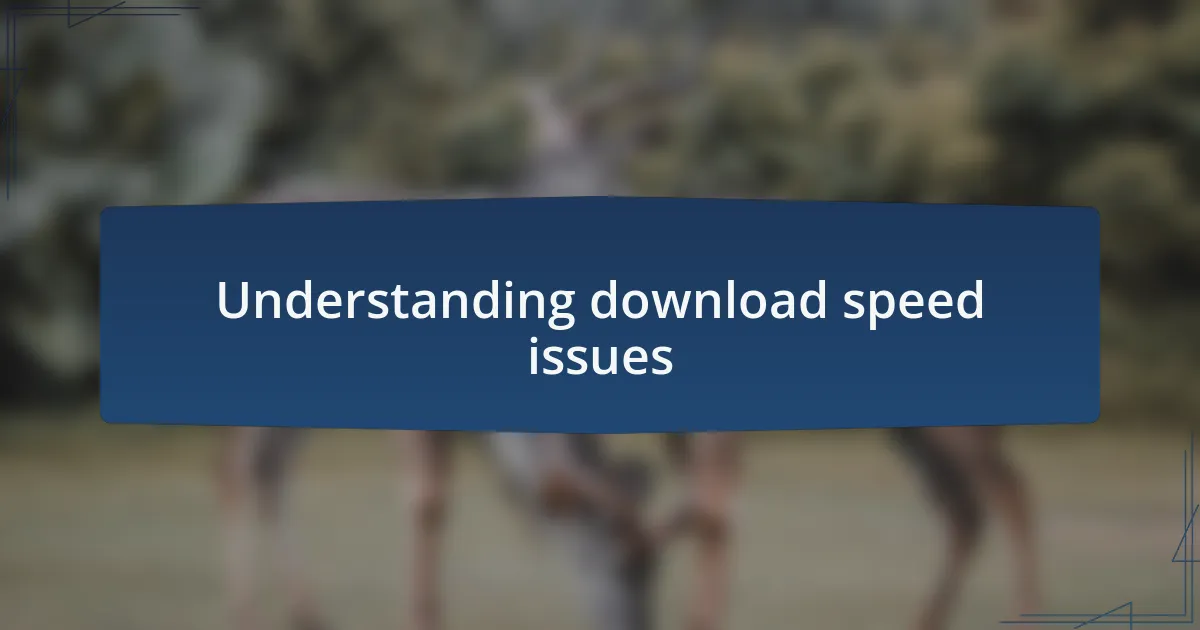
Understanding download speed issues
Download speed issues can be incredibly frustrating. I remember a time when I was waiting for a critical software update, and the progress bar seemed to be moving in slow motion. What I realized was that various factors, such as server load or network congestion, can dramatically impact the speed at which files download.
There’s something downright agonizing about watching that loading wheel spin endlessly. Often, I find myself questioning whether it’s my browser, my internet provider, or even the device I’m using. This uncertainty can lead to a sense of helplessness, especially when you’re in dire need of that file.
Another factor worth considering is the distance between your device and the server from which you’re downloading. I’ve often noticed that downloading from a nearby server significantly improves speed compared to one located far away. It makes me wonder — how often do we overlook the importance of server proximity in our tech-savvy world? Understanding these nuances can help us troubleshoot and manage our expectations effectively.
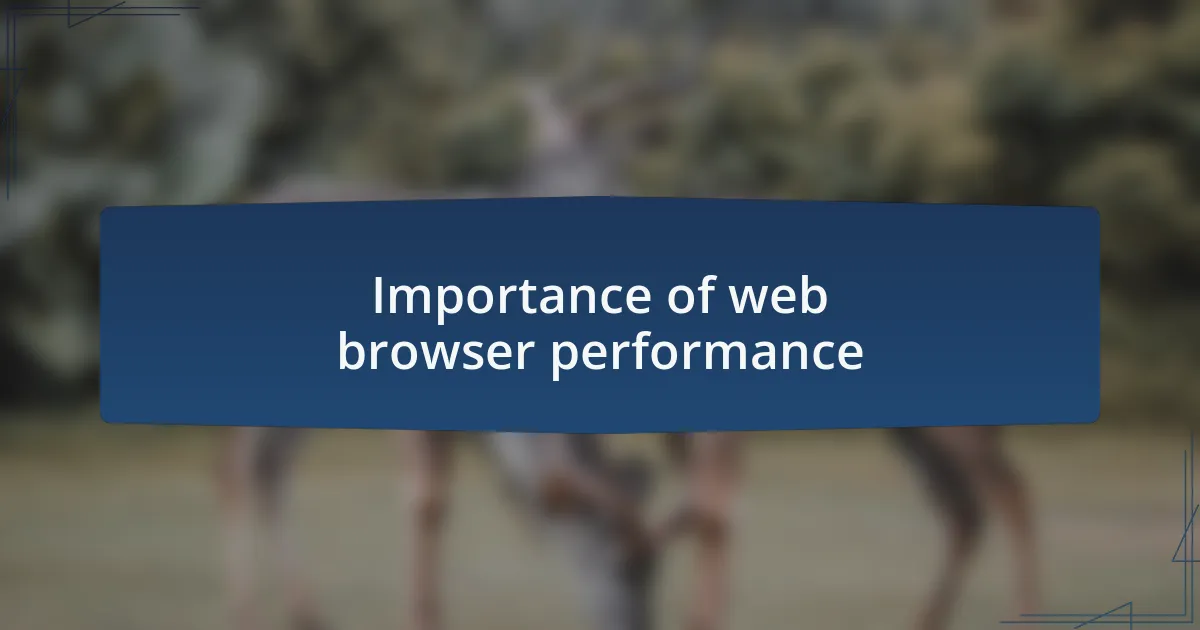
Importance of web browser performance
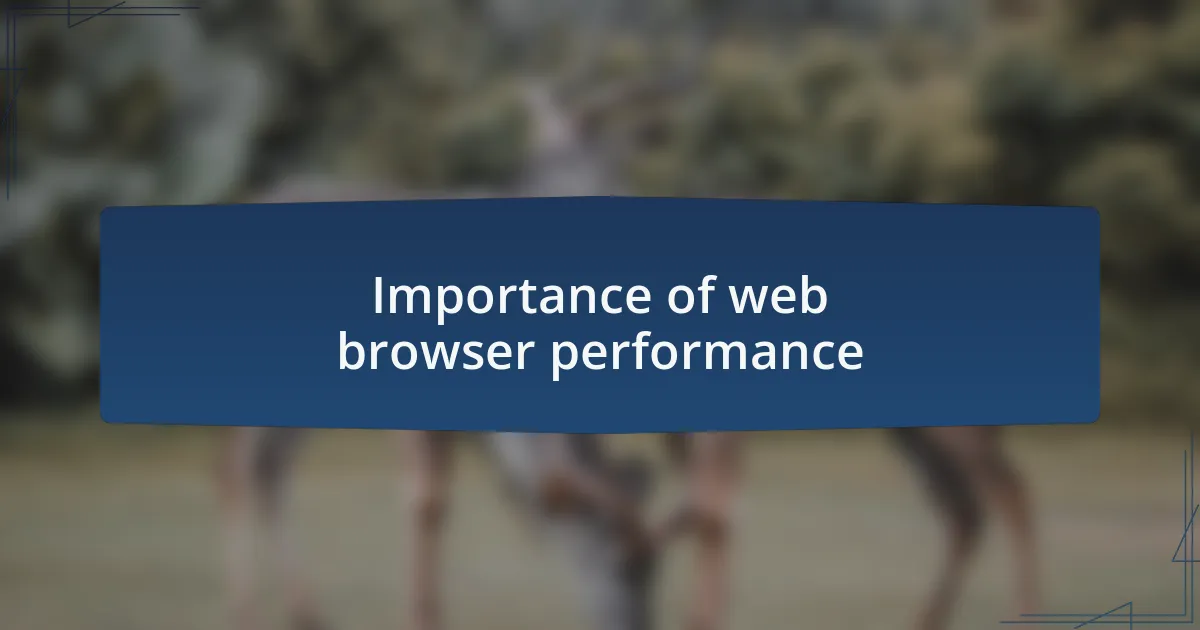
Importance of web browser performance
The performance of a web browser can make or break your online experience. I can recall a project where every second counted—my browser, unfortunately, decided that was the perfect time to lag, and it left me feeling frantic. It’s fascinating how a seamless browser performance can enhance productivity, yet a sluggish one can lead to wasted time and increased frustration.
Moreover, the speed at which a browser operates directly affects user satisfaction. When I’m streaming a video or accessing a cloud service, the last thing I want is for my browser to stutter or freeze. I often think about how important that quick response time is, especially when my attention is divided between tasks; those moments of delay can disrupt my flow and diminish my overall efficiency.
I’ve also noticed that browser performance impacts security and reliability. A well-functioning browser not only speeds up download times but also ensures that updates and patches are applied consistently and quickly. Isn’t it vital to have a browser that you can rely on, especially when it comes to safeguarding your data? The more I reflect on it, the clearer it becomes: choosing the right browser isn’t just about features; it’s about the whole experience.
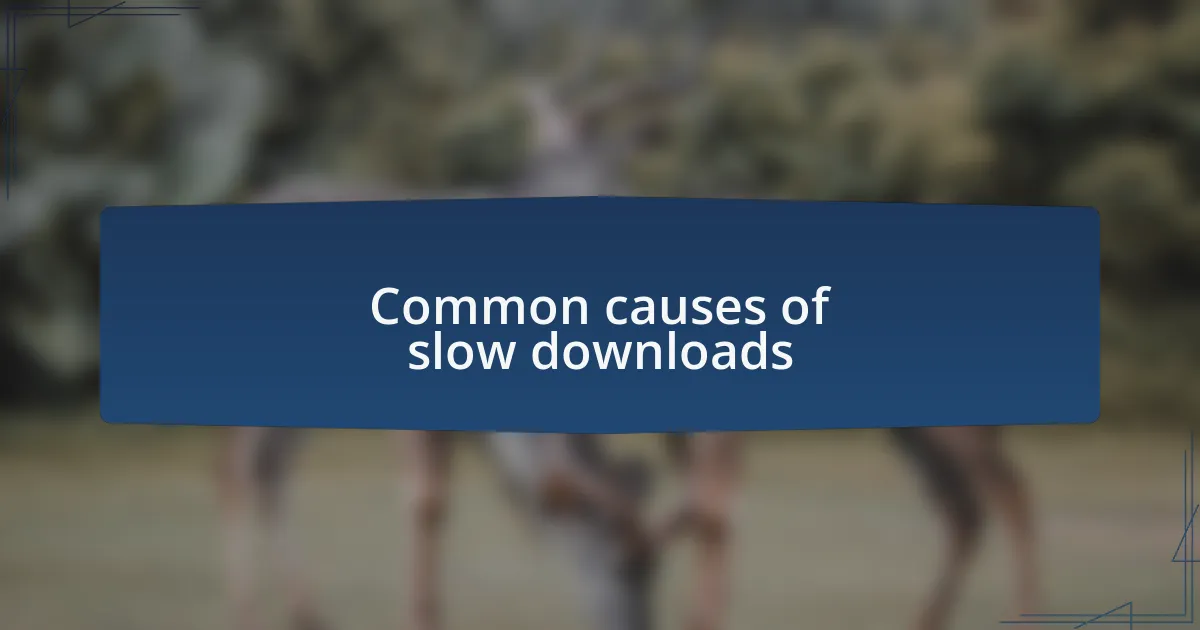
Common causes of slow downloads
One common cause of slow downloads that I’ve dealt with is a poor internet connection. There have been times when I was so eager to get some software updates, only to realize my Wi-Fi signal was weak. It’s frustrating to watch that progress bar crawl when I know I have the bandwidth—I often find myself checking my router, wondering if a simple reset could resolve the issue.
Another factor I’ve discovered is browser extensions. I remember installing several handy tools to enhance my browsing experience, only to find that my download speeds plummeted. Each extension may bring added functionality, but they can also consume resources and slow everything down. Have you ever wondered how a simple add-on could impact the speed of getting a file? For me, it was a wake-up call to regularly evaluate what I have installed.
Lastly, the server hosting the file can significantly affect download speed. If I’ve ever tried downloading from an overloaded or distant server, I found myself staring at a seemingly forever-loading screen. I often think about how location and server health play a crucial role—it’s a bit like racing: having a top-tier car doesn’t matter if the track is full of potholes!
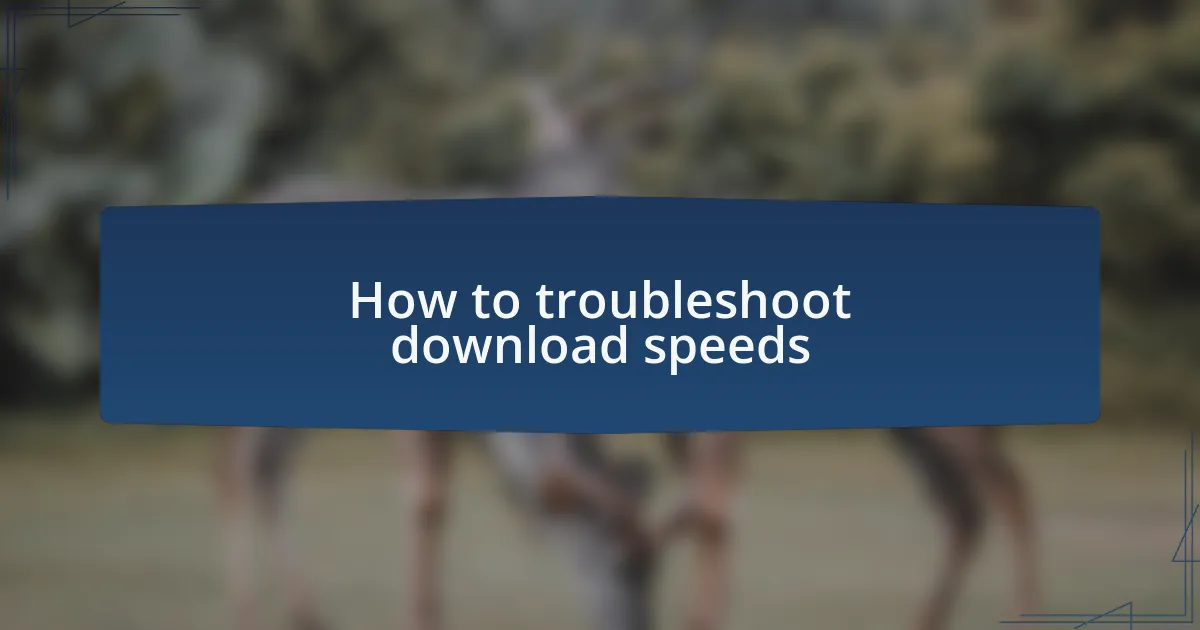
How to troubleshoot download speeds
When I experience slow download speeds, I often start by checking my internet connection stability. Just the other day, I noticed my downloads dragging again, and lo and behold, my modem was acting up. A quick power cycle not only refreshed my connection but also made me realize how crucial it is to remain vigilant about potential hardware issues.
Next, I’ve learned that changing a browser can sometimes work wonders. I vividly remember a day when my downloads were painfully slow in Chrome, yet switching to Firefox made a significant difference. It made me wonder how many people stick to one browser simply out of habit when exploring alternatives could lead to a much smoother experience.
Finally, I can’t stress enough the impact of a download manager. There was a period I resisted using one, sticking to the built-in browser options. But once I gave a download manager a try, it was like night and day—downloads became organized and often faster. Have you ever thought about how a simple tool can transform your downloading experience? It certainly reshaped mine into something far more efficient.